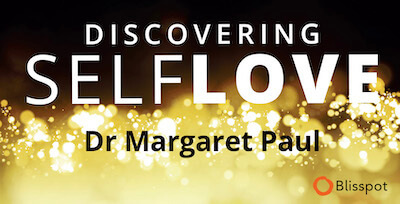Most of us like to think we are honest people, but how often do you deny your truth to get approval or avoid disapproval or conflict?
“A ‘No’ uttered for the deepest conviction is better and greater than a ‘Yes’ merely uttered to please, or what is worse, to avoid trouble.” ~ Mahatma Gandhi
How often do you say yes when you really mean no—to please or avoid trouble? How do you feel when you do this?
Rejecting Yourself to Control Others
Saying yes when you really mean no is a form of self-abandonment that may feel safe for the moment when you get the approval or avoid the disapproval. But in the long run, your inner child is going to feel rejected, unloved and unimportant to you. When it is more important to you to get approval or avoid disapproval than it is to be honest and loving to yourself, you will end up feeling badly. Is it really worth it?
How often do you avoid your truth in order to avoid hurting someone’s feelings? How do you feel when you give yourself up because you are taking responsibility for another’s feelings instead of your own? How can your inner child possibly feel important to you when you make another’s inner child’s feelings more important than your own?
Of course, in order to be honest about your own truth, you have to know your truth. If you are not being honest with yourself—if you are avoiding your feelings with various addictions or you are in denial about what you feel—then you cannot be honest with others.
How often do you do things you don’t want to do—make love when you don’t want to, spend time with someone when you don’t want to, eat something someone else cooked when you don’t want to, see a movie that you don’t want to see—to avoid conflict? How do you feel when you do this? How worthy and valued can you feel when you are ignoring your own truth?
How often do you agree with someone in order to be liked? How often do you keep your mouth shut in order to avoid disapproval? How often do you not take action – such as stepping in when someone is abusing a child or animal – to avoid the confrontation? How do you feel when you do not act in integrity on your own truth?
Most of us like to think of ourselves as honest people, but are you being honest when trying to control getting approval, avoiding disapproval or rejection, and avoiding conflict is more important than being true to yourself?
It Takes Courage To Be Honest
It takes a strong, courageous loving adult to take the risk of other’s anger, disapproval, ridicule or rejection. But if you look inside, you will discover that not being true to yourself has far greater consequences on how you feel about yourself than taking the risk of being honest.
The more you practice Inner Bonding, the easier it becomes to take the risk of honesty. The more you are defining your own worth internally rather than relying on others for your definition of yourself, the easier it is to not take others’ disapproval and rejection personally. The more you know your own intrinsic goodness—which you can only know when you are connected with your guidance—the more you know that you deserve to have your own opinions and wants, and that no one else has the right to define what is okay for you to think, do or want.
Right now, take a few minutes to think about how honest you are with the people closest to you. Think about what you might be afraid of in saying no when you mean no, and in taking loving action for yourself and with others.
You might want to take some time to examine the beliefs behind your fears of being honest, and to look honestly at the consequences of not being true to yourself. Is it really more important to be willing to lose yourself rather than risk losing someone else?








